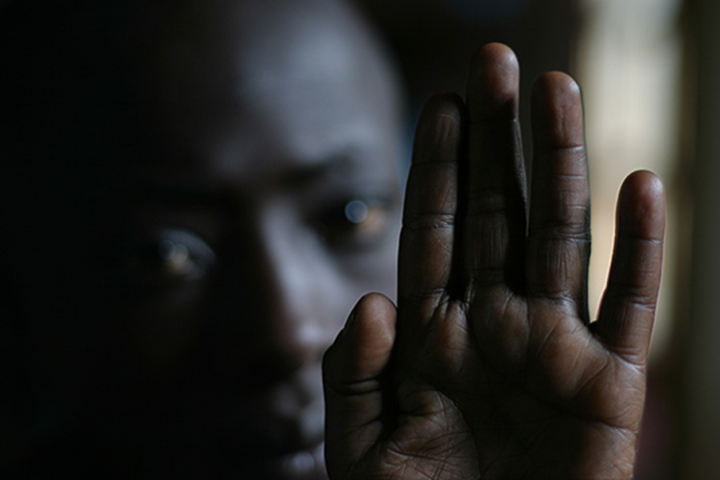
Today, the Trust Fund for Victims (TFV) at the International Criminal Court (ICC) launches a call for contributions to help deliver reparations to victims of conflict-related sexual violence.
Franziska Eckelmans, TFV Acting Executive Director said, “Sexual violence is a weapon of war in conflicts that fall under the jurisdiction of the International Criminal Court. Most prominently among them are the ongoing or recent conflicts in the Eastern Provinces of the Democratic Republic of the Congo and the Central African Republic, but also in the present and past conflicts in Mali and Ukraine. The reparative justice system of the Rome Statute not only prosecutes individuals for committing these heinous crimes with the aim of creating a deterrent effect, #NeverAgain, but also ensures through the Trust Fund for Victims that victims of conflict-related sexual violence, including children born out of rape, can have access to holistic and transformative reparations and regain hope and dignity.”
The TFV urgently needs funding to support victims of conflict-related sexual violence through its country programmes in the Central African Republic, Côte d’Ivoire, Democratic Republic of the Congo, Mali and Uganda. In 2022 alone, close to 20,000 people have received direct support from the TFV programmes in five countries.
An amount of EUR 2 million per year would increase the Trust Fund for Victims’ impact considerably. The funding will be used to provide medical treatment, psychosocial rehabilitation including awareness-raising for the communities and families related to stigma and discrimination, accelerated or vocational education and socio-economic support. In 2022, the TFV used contributions earmarked to support survivors of sexual violence received from countries such as Andorra, Estonia, Finland, Japan and the United Kingdom.
In addition, the TFV will soon start the implementation of ICC-ordered reparations in the Ntaganda and Ongwen cases. These ICC judgments are essential for crimes against humanity and war crimes such as rape, sexual slavery, forced marriage and forced pregnancy.
An additional annual amount of EUR 1 million is required to address the needs of sexual related violence victims in the Ntaganda case through an effective reparations programme. In 2021, Australia provided a seed funding for this group of victims. Further, an amount of EUR 2 million per year is urgently required for the victims of the conflict related sexual violence in the Ongwen case.
The Trust Fund for Victims is committed to supporting victim survivors of conflict-related sexual violence by providing a holistic range of services, including individualised care and integrated community-based responses, to ensure that victim survivors can achieve resilience and overcome the harm they have suffered.
Conflict -related sexual violence is at an unprecedented high in ICC situation countries, which is reflected in recent ICC judgments.. The TFV is calling on partners to increase their financial support for essential support to victim survivors of sexual violence in conflict, and to maximise the flexibility of such funding, with the ultimate aim of enabling survivors of sexual violence to become actors of peace and change within their communities.
What is the TFV aiming to achieve for victim survivors of conflict-related sexual violence?
Victims of sexual violence and their children, including children born out of rape have access to:
- Basic health services;
- Reconstructive surgery, bullet and bomb fragment removal, orthopaedic devices, referrals to services like fistula repair, HIV and AIDS screening, treatment, and support;
- Education grants, vocational training, nutrition support, or access to income generation and training opportunities;
- Individual and group-based trauma counselling; trauma-counselling aimed at strengthening the mother to child to family bonds; inter-generational responses addressing stigma, discrimination and reconciliation in families;
- Peacebuilding activities such as music, dance and drama groups and sport activities to promote social cohesion and healing; community dialogue and reconciliation to foster peace within and between the communities that create a suitable environment for prevention of crimes.
For more information about the Trust Fund for Victims, please contact: trustfundforvictims@icc-cpi.int or visit www.trustfundforvictims.org. Further information can also be found in the TFV Management Brief Q1 & Q2/2022 and TFV Annual Report 2021.
